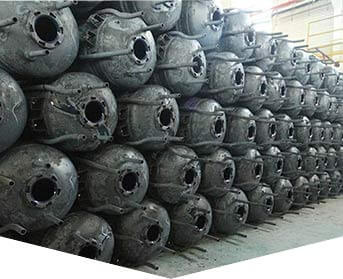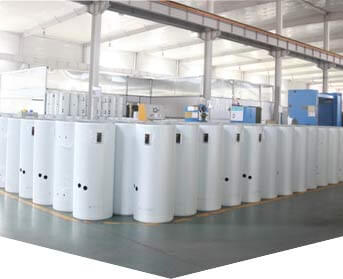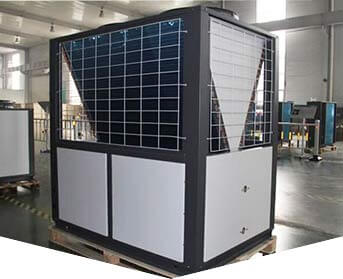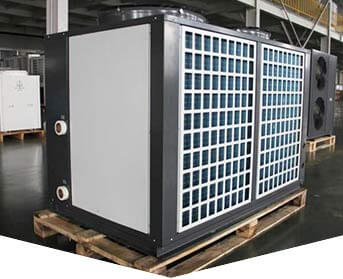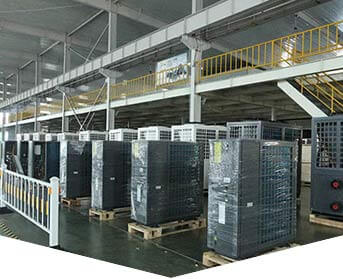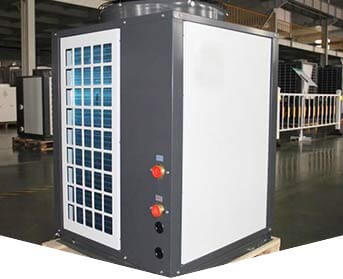Air Source Heat PumpWater Heater
MLT is a professional manufacturer and supplier of Air Source Heat Pump Water Heaters.
- 20+ years of manufacturing experiences of Air Source Heat Pump Water Heater.
- Up to 5+ years of warranty on all our Air Source Heat Pump Water Heaters.
- 100% Testing on all our Air Source Heat Pump Water Heaters and buffer tanks before delivery.
- Fast delivery, 4 weeks production time upon receiving your bulk orders.
- MLT is your best Air Source Heat Pump Water Heater manufacturer & supplier in China.
- We accept OEM & OEM orders all our our Air Source Heat Pump Water Heaters.
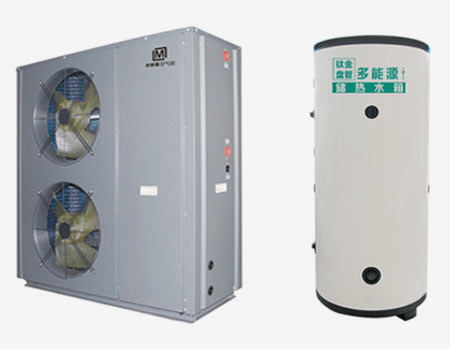
Custom Your Air Source Heat Pump Water Heater
MLT is professional in Air Source Heat Pump Water Heater with them self R&D technology team more than 20 years.
All Air Source Heat Pump Water Heater can be customized by your requirements, we can supply Air Source Heat Pump Water Heater design and suggestion for your houses , and we can supply our technical support with free installation services after our cooperation.
Our engineer can install swimming pool heat pumps for you with the reasonable salary, and we can supply training support for your staffs if you required.
We can arrange fast shipment of Air Source Heat Pump Water Heaters for you, as our staffs have more than 15 years working experience in their professional field, and we always stock some regular main parts in our warehouse.
Contact Our Support Team
Air Source Heat Pump Water Heater
The Ultimate Guide for importers and buyers
- What Is An Air Source Heat Pump Water Heater?
- How Do Heat Pump Water Heaters Function?
- Types Of Heat Pump Water Heater
- Common Applications Of Heat Pump Water Heater
- Heat Pump Water Heater Vs. Gas – Which Is Better?
- Benefits Of Air Source Heat Pump Water Heater
- How To Choose A Heat Pump Water Heater?
- Installation And Maintenance
- Conclusion
Over the past few years, we have seen a steady and consistent upsurge in the adoption of air source heat pump water heater. People consider it an economical alternative to conventional heat sources. Currently, there are thousands of ASHPWHs installed in homes and businesses across the globe.
When selecting a new air source heat pump water heater, choose the one that has a long-lasting and functional performance. It should also be energy efficient to save your money. It sounds easy to do, but it is difficult in reality. In this comprehensive buying guide, the process will be comfortable. Are you ready? Take a closer look at the following:
Chapter 1: What Is An Air Source Heat Pump Water Heater?
Before we proceed on the step-by-step process of choosing the best air source heat pump water heater, let us know what it means.
An air source heat pump water heater is a machine that extracts heat from a place to another, usually found in the residential or commercial property. The most common items that use an air source heat pump water heater are freezers and fridges. Warm air is extracted inside an appliance and is vented outward. It is also utilized for home heating. It extracts heat from a good source and put it into the water that circulated via under-floor heating and radiators. It can even extract heat from low-temperature sources. It still works best though even if it is 20 degrees below freezing.
An air source heat pump works by transporting heat absorbed from the outside air to a home, office, and other indoor spaces. That is because of the wet central heating systems that are responsible for heating radiators and providing hot water. It works like a fridge, and it also serves as a cooling system during summer. It is usually placed in an area with enough space.
Chapter 2: How Do Heat Pump Water Heaters Function?
An air source heat pump water heater utilizes electricity to move heat from place to place. It does not produce heat directly. Because of that, it could be two to three times much energy efficient compared to average electric resistance water heaters. For it to transfer the heat, it works like a fridge in the opposite.
While a fridge attracts heat from a box and tips it into a room, an air source heat pump water heater attracts heat from the air and dumps it at a good temperature. You can buy the stand-alone water heating system as a unit with the integration of backup resistance heating elements and water heater tank. Plus, you can retrofit a heat pump with a conventional storage water heater.
It normally requires installation in locations with 40 degrees to 90 degrees Fahrenheit. It should also have 1,000 cubic feet of airspace around the system. Cool exhaust air can be exhausted inside or outside your home or office. Make sure to install them in an area with excess heat. And the best space is your furnace room.
It will not perform well in a cold space. It tends to cool the place where it is installed. That is why you should consider the idea of installing a flexible air source heat pump water heater. Select the one that combines cooling, heating, and water heating. The system pulls its heat indoors from the outside air during winter. In summer, it pulls from the indoor air. Since it removes heat from the air, different kinds of air source heat pump water heater work more effectively in a warm climate.
Most homeowners install geothermal heat pumps. That draws heat from the ground during winter and from the indoor air throughout summer. For water heating, it incorporates desuperheater to the pump. It is a small and useful heat exchanger that utilizes superheated gases from the compressor of the heat pump to heat water. Then, this hot water circulates through a pipe until it reaches the tank.
Desuperheaters are available for demand-type or tankless water heaters. During summer, it uses the excess heat that will be expelled to the ground. So, when your pump runs as often as possible throughout the season, it can heat your water.
When fall, spring, and winter seasons arrive, the desuperheater does not produce much heat. You have to count more on your demand water heater. A few manufacturers provide triple-function geothermal heat pump systems that make heating and cooling possible. They employ a single heat exchanger to meet your needs.
Chapter 3: Types Of Heat Pump Water Heater
There are some types of heat pump water heaters to take into account before buying for one. The most amazing choice for your office or home depends on various factors, including climate and desired savings. But for now, it is best to understand first its categories. Below are a few types.
Air Source
Air source heat pump water works to heat and cools your home or office by drawing heat from the outside air especially in winter. Then, it moves the heat indoors and rejects it outside during summer.
It is divided into two categories such as air-to-air and air-to-water. Converting your heating system from an electric furnace to an electric air-source pump can eliminate high electric costs. It can also reduce your water heating bills by 50%. Plus, you can earn a tax credit once you buy an Energy Star unit.
Air-to-Air: This heat pump water heater works by moving air from an end of the system to another. It is the most common style of air-source pumps. Usually, residential properties or commercial establishments with ductwork ventilation distribution systems take advantage of this air-to-air heater.
Air-to-Water: This heat pump water heater is less common than air-to-air products. However, it follows similar heat distribution principle. It is connected to a hydronic heating system in home or office. Heat is primarily drawn from the outside air and then distributed with the use of the hydronic system. An air-to-water heat pump that has a cooling feature is possible. But it draws heat from a property through the water heating system. Then, it pumps the heat outside.
Ground-Source
Also known as geothermal, geo-exchange, or earth-energy, a ground-source heat pump uses the groundwater or the earth to heat and cool an establishment. It is available in open-loop and closed-loop systems. It is an ideal solution for use with radiant and forced air heating systems.
Like the other types of heat pump water heater, it is energy efficient. It performs well in areas with harsh winter weather. Making it as your number one option is certainly a hassle-free decision. It reduces your water heating bills, too.
Open-Loop: The ground-source heat pump system utilizes an underground body of water for cooling and heating. It relies on a good system to draw water. Then, it extracts the heat. After a second or two, the water returns to its original body of water through another well.
Closed-Loop: The second type of ground-source heat pump employs a run of underground piping to extract and reject heat from the earth. Since the system is pressurized, it requires annual maintenance.
Ductless Mini-Split
The ductless mini-split system utilizes heat pump technology to cool a building. Some units can offer supplemental heat through another air handling unit. They are perfect for use in residential properties where ductwork is not economical. They boast a compact size that is not convenient and carry a high upfront cost. But they also offer a zoned heating solution that cuts down your energy costs on a monthly basis.
Chapter 4: Common Applications Of Heat Pump Water Heater
A Heat pump water heater is very flexible. It can be used in different applications. Whatever your goal in using a heat pump water heater, you can achieve it without hassles. You will realize that your investment is worthwhile and meaningful.
Here are some common applications of heat pump water heater:
Residential
A Heat pump water heater is common in residential properties. Because of its plethora of benefits, no wonder why many people get a unit installed in their home. It is very convenient to use and is known for automatic heating. Once the water temperature drops to the setpoint, the equipment starts working to ensure effective performance.
Homeowners find it easy and clear to control, too. You can power on/off and set the temperature without a burden. The heating and defrosting mode are also stress-free. You can also expect protection in water flow switch, anti-freezing, high/low pressure, high discharging temperature, and compressor overload.
However, all of these things depend on the service provider of your option. Select the company that has a trusted reputation. Pay attention to those with in-depth knowledge and wide experience. By that, you can work with a contractor that best suits your requirements.
Commercial
The heat pump water heater has also been used in commercial establishments. Most units in the market maintain a higher COP. There are green refrigerant and have high efficiency. They offer great hot water solution for use in schools, hospitals, hotels, and many more. They can also provide hot water instantly that is perfect for those who have a hectic schedule.
Industrial
A heat pump water heater can also be used in industrial processes. The majority of industrial plants have waste heat flows or heat consumers. Waste heat flows include wastewater, condenser heat from refrigerators, hot, humid air, etc. Heat consumers, on the other hand, are the central heating systems, processed water, dryers, and blanchers.
Specific Industrial Applications
- Washing Processes
In the industrial sector, washing processes are common. Most of them involve mixing hot water with a solvent. More often than not, the washing installation is well-equipped with an effective air discharge fan to prevent vapor from flowing. It will blow humid hot air to the ambient and maintain an under pressure inside a unit. Since the discharge air contains energy, a heat pump can use it to heat the washing water. Heating of Processed Water with Waste Heat from Refrigerant
Usually, the food industry produces products that should be frozen or cooled before transport or consumption. Hot water, on the contrary, plays a vital role for cleaning purposes. Waste heat from refrigeration systems has a minimum temperature of 25 degrees Celsius. Sometimes, it reaches 30 degree Celsius.The waste heat is utilized by using an add-on heat pump to heat water up to 80 degree Celsius. It will further intensify the pressure of the refrigerant to make high condensation temperatures possible.
Pasteurization
For pasteurization, a product has to be heated above 70 degree Celsius. Right after the process, a product is cooled down. The temperature varies from cold before the process to hot during pasteurization. After the method, it is back to cold again. In most processes, heat exchange in both products flows is implemented.Before pasteurization, the cold product is employed to pre-cool itself. After the process, the hot product is utilized to preheat the cold product. These extra heating and cooling are necessary for pasteurization. Normally, these are provided by a flow of chilled water, steam injection, etc. For the extraction of heat from the product, a heat pump water heater is the ideal solution.
Other Applications
Industrial plants also offer a variety of potential users and heat sources. The heat pump water heater is a promising technique with countless applications in the industry. An extensive analysis is what you need to investigate its feasibility for your situation.
Chapter 5: Heat Pump Water Heater Vs. Gas – Which Is Better?
Whether your home or office has access to natural gas, you might wonder which water heater is best for you: a gas water heater or a hybrid heat pump water heater.
Well, it depends on what is most imperative to you: energy efficiency? Optimal comfort? Or saving money in the long term run? If maximum comfort is more significant to you, a gas water heater is an option you cannot afford to miss. It has a higher recovery rate than heat pump water heater.
If saving money matters to you the most, a hybrid heat pump is perhaps the ideal choice you can ever have. Now, let us take a close look at all of these factors:
Gas Water Heaters Offer Better Comfort
A gas water heater offers a maximum of comfort. That is because of its faster recovery rate. It refers to the time it takes a water heater to reheat its supply of hot water. When you employ frequent or large draws of hot water, this unit can benefit you a lot.
When it comes to a heat pump water heater, it will not be the case. The heater has a low BTU input, meaning it will not keep up, especially if your household is accustomed to drawing large volumes of hot water on a daily basis.
Let’s say you and your family draw hot water from gallons of tank. Once it has been depleted, you might be waiting for eight hours until it could provide a tank of hot water again. A gas water heater, meanwhile, could recover a depleted tank within an hour or two. Therefore, if you don’t want to run out of enough hot water, a gas water heater is the unit you should have.
Heat Pump Water Heater Cost
Of course, you want to acquire huge savings. A hybrid heat water heater is the better choice. How does it happen? Well, even though a heat pump water heater has a more upfront rate, it offers lower heating costs. It relatively requires little energy to operate.
According to experts, a hybrid heat water heater has lower energy costs because of its highest efficiency. It moves heat while gas water heaters create heat through combustion. And, moving heat takes less energy than creating it.
Chapter 6: Benefits Of Air Source Heat Pump Water Heater
Are you looking for a water heater? Or having a hard time thinking about the option that fits your expectations? Whatever the case may be, there is nothing to worry. An air source heat pump water heater has been manufactured to fulfill your dreams. Unlike other products on the market, it ensures a lot of benefits.
Here are some of them:
Environmental Benefits
Air source heat pump water heater has been used for upgrading ambient heat from different sources to heating temperatures. It has been applied in residential, commercial, and industrial heating, cooling, refrigeration, and water heating. Since its availability, CO2 emissions have been reduced.
Based on studies, it saves up to 6% of the C02 emissions. By getting an air source heat pump water heater installed in your office or home, you can help alleviate climate change. Plus, you can contribute to the mission of saving the earth.
Employ Less than Half as Much Electricity as Conventional Electric Water Heater
An air source heat pump water heater does not require much electricity. It is energy efficient, helping you acquire huge savings within a long span of time. You can say bye to high electric bills and say hello to a money-saving or fun experience.
Most Efficient in Warmer Climates
Selecting a water heater is not as easy as eating a pie. It is tougher than you think. Aside from considering the durability and affordability of a unit, don’t forget to take the weather into account. If you live in a city with a warmer climate, then, an air source heat pump water heater is the product to buy.
No matter how warm your place is, it ensures a functional and effective performance. It will never perform in a way that will disappoint you. Give it a try before it is too late. To include it on your shopping list will be a brilliant idea.
Low Running Costs
An air source heat pump water heater is cheaper to run than combustion-based systems. The more energy efficient a system is, the greater long-term savings will be. Even though its price can go up to a thousand dollar, it can help you save a good amount of penny. It is also an eco-friendly investment you deserve.
For those who have been spending a lot on running costs, switch now to an air source heat pump water heater. It is available at a fair and reasonable price. It is neither expensive nor cheap. It is cost-effective.
Less Maintenance
An air source heat pump water heater requires less maintenance than combustion heating systems. There is no need to check a few details about the system on a regular basis. Doing it once a year is enough. Instead of letting a professional do the job for you, you can finish the process yourself.
But maintaining it yourself for a decade is not advisable. Every three or five years, it is important to seek assistance from a professional installer. Make sure the company is trusted and reliable to avoid dilemmas.
100% Safety
An air source heat pump water heater is safer than combustion-based heating systems. You can avoid accidents from happening. You can also feel confident to prevent fire hazards.
Free of Carbon Emissions
People in residential, commercial, and industrial sectors have been quite amazed by an air source heat pump water heater. Apart from its sturdy or aesthetic feature, it is environmentally friendly. It does not emit carbon. And it has an effective conversion rate of energy to heat. It reaches high efficiencies close to a hundred percent.
Offer Awesome Cooling
An air source heat pump water heater is a flexible unit for different people. During summer, it can reverse its process. It can become an excellent AC unit. It can be conveniently switched to cooling mode during a warm season. Instead of purchasing both water heater and cooler, an air source heat pump water heater is excellent.
Long-lasting Longevity
The lifespan of an air source heat pump water heater is relatively long. It can last a decade or two. You don’t need extensive and expensive maintenance to make it possible. In fact, you can relax during your spare time. Despite the years of longevity, it is exceptionally a steady and reliable source of heat.
Not only does it last for a long time, but it can also perform according to your requirements. It will remain functional and effective for over a decade. But it may look dull and get damaged, so call a professional service provider. Choose the company that has a reliable reputation.
Easy to Install
An air source heat pump water heater requires a minute of installation. That means the process is not complicated at all. Pretty sure, it is going to be a breeze. You don’t have to learn complex terms or master high-level of skills. With a little knowledge and experience, you can get one installed by yourself.
If you can’t carry out the installation because of a hectic schedule, then rely on a company near you. Or ask help from a relative or a close friend to avoid unnecessary expenses.
Powered by Wind Energy
Instead of electricity, an air source heat pump water heater can be powered by solar power or wind energy. After a month of use, you can see a huge difference in your monthly bills. While enjoying warm water during cold season or vice versa, you can save a hundred dollars in electric consumption.
Provide Negative 20 Degree Celsius
An air source heat pump water heater can deliver heat at a temperature of negative 20 degree Celsius. Compared to gas and conventional gas boilers, it is far different. It is not burdensome to use. Perhaps, it will become a source of satisfaction for you.
Fuel Storage Is Not Necessary
Storing a gallon of fuel can be challenging, overwhelming, and costly. Using an air source heat pump water heater can avoid fuel storage. You can always get the most of out of it through the air and other elements. You can spend the budget for fuel storage on other important stuff.
A Flexible Unit
During summer, an air source heat pump water heater can provide cooling. During winter, it can also be effective for heating purposes. So, it is a flexible unit you should not miss. When you are hesitant because of the price, don’t worry as it is available at a competitive rate. You can search online to find the best deals from a trustworthy contractor.
Able to Heat Water for Later or Immediate Use
Within a few seconds, an air source heat pump water heater can perform beyond your expectations. It can heat water as fast as possible. If you are always in a hurry to go to your office, it will not be an inconvenience on your part. Comfortable experience is what you can expect.
Chapter 7: How To Choose A Heat Pump Water Heater?
An air source heat pump water heater is no doubt a beneficial option. With its benefits, it is worth considering. You can purchase a unit any time of the day. How are you going to choose the one that is responsive and customized?
Simply follow the tips below:
- Size: This depends on the energy you will use to power the system of your option. It is imperative to identify the flow rate and the number of appliances that will be using hot water at the same time. Another thing to consider is the needed water temperature for every device to work efficiently.
- First Hour Rating: Another essential factor to take into account is the first-hour rating. This means the amount of hot water produced every hour. Its value is positively similar to the tank’s capacity and the burner’s size. The greater the tank capacity, the greater volume of water that will be collected.
- The Kind of Burner Utilized is Salient, Too: Some are more powerful and efficient. It is recommended to select a mode that can fulfill the peak hour demand. That means the amount of water consumed every day depends on the household members.
- Energy Efficiency: The right authority usually measures the energy efficiency of an air source heat pump water heater. They consider a unit efficiency regarding hot water produced over the total amount of hot water consumed on a daily basis. It also includes the heat lost during the cycle. This is because of the speed of transfer.
- Overall Costs: These refer to the economic impact of an air source heat pump water heater. These include the expenses of buying a unit, the needed amount of money for installation and maintenance. Other additional expenses may also happen for the years to come.
Chapter 8: Installation And Maintenance
It is said that installing an air source heat pump water heater can be done by anyone. In reality, it may happen because instructions are available. But sometimes, people may encounter trouble getting a unit installed. To make the process right, the steps below will be of great help.
- Install the Condenser Unit: Bolt this to the ground or install on brackets up against your house. Clean the area first and make sure it is beyond the edge of your roofing system.
- Install the Air Handling Mounts: Before attaching the air unit, install the mounting plate. Also, drill a hole from the right position to the outdoor unit.
- Mount Air Handling Unit: Attach the indoor handling unit to the brackets. Feed the control wire and refrigerant lines. Then, condensate drain hose using the drilled hole.
- Connect Both Indoor and Outdoor Units: In connecting these units, follow the manufacturer’s instructions.
- Cover the Lines: Use plastic covering to hide unsightly lines of your home. This increases the curb appeal of your property.
- Make the Final Connections: Connect a gauge manifold as well as a vacuum pump to refrigerant lines. This helps you detect leaks. Finally, run your unit to test whether it is working or not.
Maintenance
An air source heat pump water heater does not require complicated maintenance. You can keep it in good condition with ease. For the best results, count on a reputed company. Be careful when making an option. Trust the one that has a team of qualified and versatile installers.
Frequestly Asked Question
1.How much does an air source heat pump water heater cost?
It depends. Generally speaking, it is available at competitive pricing. Rest assured that you will acquire huge savings and avoid unnecessary expenses.
2.Should an outdoor unit be covered during winter?
It is not advisable. An air source heat pump water heater can be turned on by household members without them knowing that the unit has been covered. It is specially designed to withstand harsh weather conditions. So, there is nothing to worry about.
3.Can shrubs be planted around an outdoor unit?
Of course yes. But the plants should not be closer to the unit. It allows ideal air circulation and helps avoid replacement or repair.
4.How do I know the best size for my house needs?
A professional HVAC specialist should be consulted. He or she can identify the right size and assist you in other things throughout the process.
5.Can I heat my home or office with an air source heat pump water heater without other sources?
During winter, this unit can be the only source of heat. Therefore, it is advisable to have a backup source of heat for a long period of the cold season.
6.What is a tankless water heater?
A tankless water heater has a gas or electric device that is activated once the water flows. It heats the water without the use of a tank. When you turn it on, water travels thru a pipe and reach the heater to produce enough warm water.
7.Why does not my old air source heat pump water heater make as much hot water as it used to?
The tank of your unit may have sediment buildup. As it ages, it tends to accumulate lime deposits. If it is not cleaned regularly, the level of sediment will increase. Plus, it will act as a barrier between the water and the burner.
8.If my air source heat pump water was in flood, do I need to replace it ahead of time?
Yes. Experts recommend that any flood-damaged HVAC equipment must be replaced with a new one. Select the company with a line of durable and effective products.
9.What kind of maintenance should I do on my air source heat pump water heater?
Contacting a professional to perform maintenance or repairs is a brilliant idea. The professional of your choice will be the one to handle the problem. So, you have time to spend with your family.
10.Can I replace the outdoor system on an older unit?
No. Your air source heat pump water heater will not function as effectively as possible. In fact, it will lose its efficiency up to 15%. Even worse, it may fail sooner than you think.
Conclusion
There you have it! When the selection of an air source heat pump water heater comes, you will never have a difficult time. We hope that this buying guide helps you throughout the process. Have a fun, stress-free, and convenient shopping experience!
References:
- http://www.thompsonplumbingandheating.com/support/ask-expert/#
- http://www.24heatingcooling.com/heating-cooling-questions-answers#what-is-a-tankless-water-heater
- https://www.angieslist.com/articles/heating-and-cooling-10-answers-frequently-asked-questions.htm
- https://www.greenmatch.co.uk/blog/2014/07/how-to-choose-a-heat-pump-water-heater
- https://www.greenmatch.co.uk/blog/2014/08/heat-pumps-7-advantages-and-disadvantages
- https://georgebrazilplumbingelectrical.com/blog/heat-pump-water-heater-vs.-gas-water-heater-which-is-better
- https://cleantechnica.com/2016/11/30/heat-pump-water-heaters-save-money-energy/
- http://industrialheatpumps.nl/en/applications/* https://superhomes.ie/heatpump/https://www.which.co.uk/reviews/ground-and-air-source-heat-pumps/article/air-source-heat-pumps-explained
- https://snappyservices.com/heat-pump-installation-buying-guide/
- https://www.greenmatch.co.uk/blog/2016/02/pros-and-cons-of-air-source-heat-pumps

